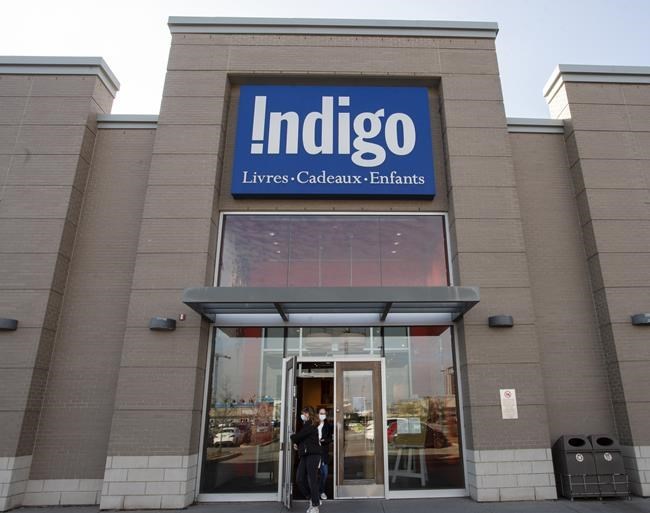TORONTO ŌĆö Indigo Books & Music Inc.'s chief executive says the retailer's last year has been "challenging" and it could be a while until its financial results recover.
Speaking Friday on an analyst call, Heather Reisman described 2023 as a year marred by "disruptions" ŌĆö a ransomware attack that downed its e-commerce operations for a lengthy period, the "premature" launch of a new platform meant to replace it, the overbuying of some merchandise and a "challenging" economic environment.
These events sent Indigo's third-quarter profits into a tailspin, dropping roughly 70 per cent to $10 million from $34.3 million a year earlier.
Revenues for the quarter ended Dec. 30 were $370.6 million, down from $422.7 million during the same quarter in 2022. Earnings per diluted share were 35 cents, down from $1.22.
Such numbers have made the transformation plan Indigo began last year even more critical. Reisman said steps to advance that plan were carried out during the quarter.┬Ā
"We made the decision to rightsize and rightshape our general merchandise inventory," she said.
"This strategic decision to clear unnecessary inventory had a significant impact on margins and therefore profitability, but it was the right decision."
Chief financial officer and chief operating officer Craig Loudon said that meant Indigo relied more on discounting, which lowered sales figures.┬Ā
He also acknowledged that some of the problems came down to what the retailer was selling.
"We don't believe in the home stretch of Christmas that we had the right general merchandise assortment that people were looking for in those final few weeks," he said.
Indigo, which began as a bookseller, has diversified its product mix significantly in recent years and now offers a range of products from cookware to sex toys and even furniture.
Some of that diversification happened under Peter Ruis, a seasoned retail business leader who became Indigo's CEO in September 2022.┬Ā
Reisman, Indigo's founder, retired last summer, but rejoined the company in September after Ruis abruptly left the retailer.┬Ā
Before Reisman's retirement as executive chair and a director in August, four of Indigo's 10 directors left its board, with Chika Stacy Oriuwa attributing her resignation to a "loss of confidence in board leadership" and "mistreatment." Other executives left shortly after.
Once Reisman took the helm of Indigo again, she launched a transformation plan, but released scant details.
Last week, a pair of companies owned by Gerald Schwartz, Indigo's controlling shareholder and Reisman's husband, offered a non-binding proposal to take the retailer private.
On Friday, analysts got a better window into what's been going on at Indigo for the first time since the privatization offer.┬Ā
Reisman said the company has now reinvested in its book inventory, which she considers core to its ethos to spread a love of reading.
It also laid off an unspecified number of staff and streamlined its head office in January, which she characterized as both "normal course of business" and "a difficult decision, but the right one."
On an annualized basis, Indigo expects the move to save it $10 million.
Those savings could come in handy as Indigo focuses more closely on stabilizing its e-commerce operations, which underperformed compared with its retail division.
Following the February 2023 cyberattack, Indigo began rolling out a temporary website and the retailer received $1.3 million in proceeds from its insurance.
Asked by an analyst what issues Indigo's new e-commerce systems have faced, Reisman said, "I don't think that this is appropriate for us to go into the full details here."
However, she said issues with Indigo's e-commerce operations have stabilized and the company is working "to get it to the full potential of what we want."
This report by The Canadian Press was first published Feb. 9, 2024.
Companies in this story: (TSX:IDG)
Tara Deschamps, The Canadian Press



